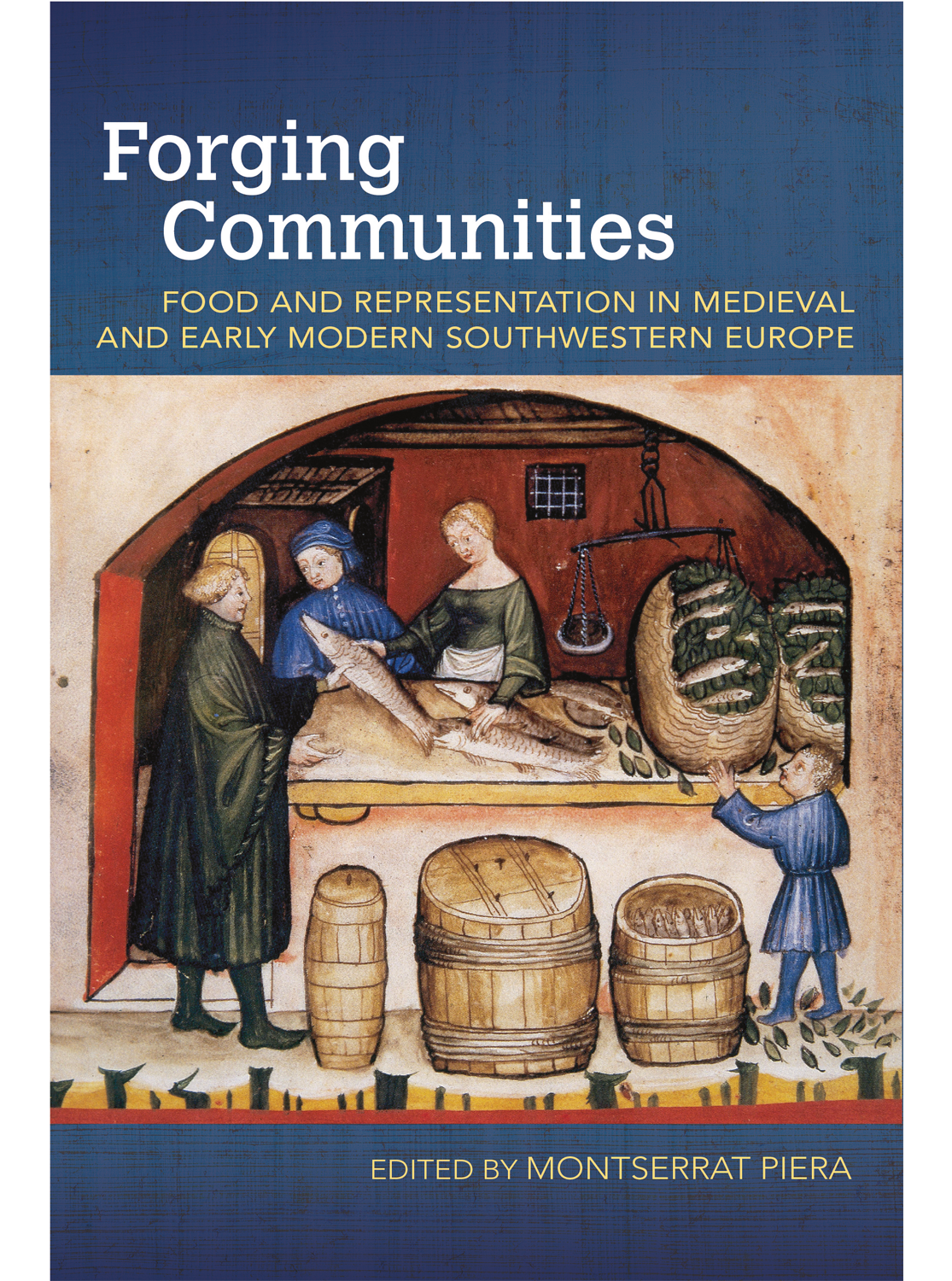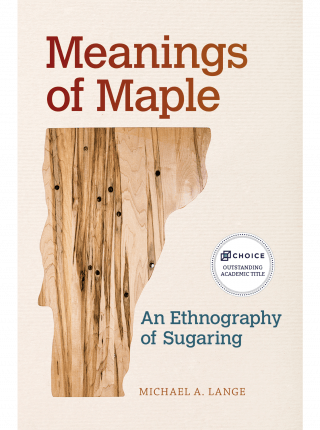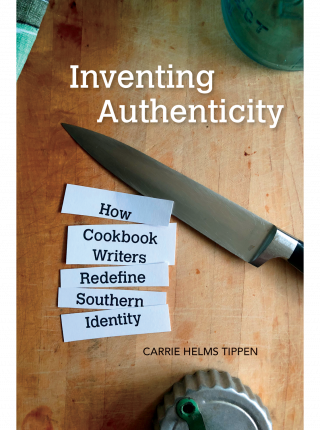Forging Communities explores the importance of the cultivation, provision, trade, and exchange of foods and beverages to mankind’s technological advancement, violent conquest, and maritime exploration. The thirteen essays here show how the sharing of food and drink forged social, religious, and community bonds, and how ceremonial feasts as well as domestic daily meals strengthened ties and solidified ethnoreligious identity through the sharing of food customs. The very act of eating and the pleasure derived from it are metaphorically linked to two other sublime activities of the human experience: sexuality and the search for the divine.
This interdisciplinary study of food in medieval and early modern communities connects threads of history conventionally examined separately or in isolation. The intersection of foodstuffs with politics, religion, economics, and culture enhances our understanding of historical developments and cultural continuities through the centuries, giving insight that today, as much as in the past, we are what we eat and what we eat is never devoid of meaning.
Winner, 2019 Association for the Study of Food and Society Book Award, best edited collection
“Following in the footsteps of recent critical work on food that focuses on the medieval and early modern periods by scholars such as Bynum, Freedman, Montanari, or Fernández-Armesto, Montserrat Piera has assembled a remarkable and groundbreaking set of studies which elucidate ‘the intersection of material and mental exchanges that surround food and how it establishes identities, defines groups, and brings about change and (r)evolution.’ The thirteen chapters here provide a fresh analysis of the way food forges communities across lands and of the intersection of foodstuffs with politics, religion, economics and culture.”
—Antonio Cortijo Ocaña, University of California, Santa Barbara
“Forging Communities presents the reader with a wide-ranging collection of essays in which the individual authors draw from material as diverse as cookbooks, literature, and religious, scientific, and magical texts to explore the cultural meanings of medieval and early modern food practices. Crisscrossing boundaries between cultures and subcultures as well as between disciplines, this collection is a valuable addition to the growing conversation about how foodways can illuminate our understanding of the distant past, and how food can create, bridge, and define communities.”
—Marie A. Kelleher, California State University, Long Beach
Montserrat Piera is associate professor of Spanish and Portuguese at Temple University and editor of Remapping Travel Narratives, 1000–1700: To the East and Back Again.

Food and Foodways is a series from the University of Arkansas Press that explores historical and contemporary topics in global food studies. We are committed to representing a diverse set of voices that tell lesser known food stories and to provoking new avenues of interdisciplinary research. Our strengths are works in the humanities and social sciences that use food as a critical lens to examine broader cultural, environmental, and ethical issues. In addition to scholarly books, we publish creative nonfiction that explores these topics with a focus on food’s sensory dimensions.
Feeding ourselves has long entangled human beings within complicated moral puzzles of social injustice and environmental destruction. When we eat, we consume not only food on the plate but also the lives and labors of innumerable plants, animals, and people. This process distributes its costs unevenly across race, class, gender, and other social categories. The production and distribution of food often obscures these material and cultural connections, impeding honest assessments of our impacts on the world around us. By taking these relationships seriously, the Food and Foodways series provides a new collection of critical studies that analyze the cultural and environmental relationships that have sustained human societies.
We welcome submissions from authors and editors in all methodological corners of the humanities and social sciences who approach food from these critical perspectives.
Part I: Connections and Transitions in Muslim, Hebrew, and Christian Communities
Chapter 1 – From Kitāb al-tabīj to the Llibre de Sent Soví: Continuities and Shifts in the Earliest Iberian Cooking Manuals
Carolyn A. Nadeau
Chapter 2 – Food and Death: Foodways and Communities in the Danza general de la muerte
Michelle M. Hamilton and María Morrás
Chapter 3 – “Los que comedes mi pan”: Food References in the Romancero
Hilary Pomeroy
Chapter 4 – Magical Morsels: Food in Morisco Aljamiado Incantations
Veronica Menaldi
Part II: Food Choices: Ideals and Practices in Monastic and Lay Communities
Chapter 5 – Notions of Nutrition and the Properties of Food in the Middle Ages
Donna M. Rogers
Chapter 6 – Alleviating Hunger without Pleasing the Palate: The Dietetic Proposal of the Cistercian Order in the First Half of the Twelfth Century
Antoni Riera i Melis
Chapter 7 – Salty, Sweet, and Spicy: Flavors in Benedictine Cuisine in Catalonia at the End of the Middle Ages
Ramón A. Banegas López
Chapter 8 – Breaking Nonnatural Bread: Alimentary Hygiene and Radical Individualism in Juan de Aviñon’s Medicina sevillana
Michael Solomon
Chapter 9 – Eating for Success: Where, When, and What to Eat in Early Modern Spain
Patricia Moore-Martínez
Part III: Food as Fetish: Gendering Sexual Desire through Food
Chapter 10 – “A Whim for Strawberries”: At the Literary Table in Les quinze joies de mariage
Nelly Labère
Chapter 11 – Have a Heart!: Love, Lust, and the Properties of Heart Consumption from Guillem de Cabestany to Curial e Güelfa
Montserrat Piera
Chapter 12 – Aphrodisiacs in Medieval Iberian Texts
Amy I. Aronson
Chapter 13 – Gendering Fasting: The Medieval Battles of Flesh and Lent
Ana Pairet





